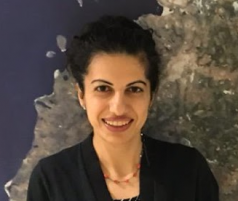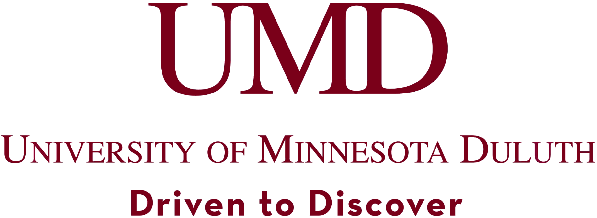Winter 2019 eNewsletter
Winter Announcements
CIGLR announces winners of $442,000 in 2019 partner awards.
Each year, CIGLR offers competitive programmatic funding for Consortium partners to build collaborations with NOAA. Through these partnerships, recipients provide early career training to graduate students and postdocs, delve into big Great Lakes issues in multidisciplinary summits, translate research to the public, and respond to emergencies and other time-sensitive needs in the Great Lakes. We are pleased to announce the recipients of the 2019 partner awards, totaling $442,000. These four postdoctoral fellowships, five graduate research fellowships, one summit, and two ECO awards will advance important areas of Great Lakes research and form connections between our partners and NOAA. Thank you to all who applied and congratulations to the winners!
Postdoctoral Fellowship Awards
 Dr. Jay Martin, Ohio State University: Comparison of model flow predictions to edge of field (EOF) data: Determining the ability of a watershed model (SWAT) and forecast tool (NOAA RRAF) to predict runoff from agricultural fields in Western Lake Erie watersheds
Dr. Jay Martin, Ohio State University: Comparison of model flow predictions to edge of field (EOF) data: Determining the ability of a watershed model (SWAT) and forecast tool (NOAA RRAF) to predict runoff from agricultural fields in Western Lake Erie watersheds
With co-mentors Dr. Margaret Kalcic (OSU) and Dr. Craig Stow of NOAA GLERL, Dr. Martin and postdoctoral fellow Dr. Asmita Murumkar will work to develop recommendations and management tools to reduce runoff from agricultural fields in the Maumee watershed, which is the largest contributor of nutrient runoff pollution to Lake Erie.
 Dr. Allison Steiner, University of Michigan: Generation and Transport of Aerosolized Toxins from Harmful Algal Blooms in the western Lake Erie basin
Dr. Allison Steiner, University of Michigan: Generation and Transport of Aerosolized Toxins from Harmful Algal Blooms in the western Lake Erie basin
Dr. Steiner will team up with NOAA GLERL colleague Dr. Eric Anderson and a postdoctoral fellow to investigate how far inland airborne toxin particles can travel, thus potentially providing an alternate pathway to toxin exposure for coastal communities.
 Dr. Christiane Jablonowski, University of Michigan: Improving Lake-Effect Snowfall Forecast Capability using a Coupled High-Resolution Weather, Hydrodynamic-Ice Modeling System
Dr. Christiane Jablonowski, University of Michigan: Improving Lake-Effect Snowfall Forecast Capability using a Coupled High-Resolution Weather, Hydrodynamic-Ice Modeling System
Postdoctoral Fellow Dr. David Wright will be co-mentored by Dr. Christiane Jablonowski and Drs. Philip Chu and Brent Lofgren (NOAA GLERL). Together, this team will couple atmospheric models with three-dimensional lake circulation models to better represent air-land-lake interactions in the Great Lakes region, which they expect will improve lake effect snow forecast capability.
 Dr. C.K. Shum, Ohio State University: Support of an Improved Establishment and Maintenance of the International Great Lakes Datum
Dr. C.K. Shum, Ohio State University: Support of an Improved Establishment and Maintenance of the International Great Lakes Datum
With co-mentor Dr. Dana Caccamise (NOAA National Geodetic Survey), Dr. Shum and postdoctoral fellow Dr. Xiaobin Cai will investigate the use of new techniques for measuring water levels using satellite data, to support efficient updating and maintenance of the International Great Lakes Datum (IGLD).
Graduate Research Fellowship Awards
- Dr. Harvey Bootsma, University of Wisconsin-Milwaukee: No Title
- Dr. Peter Dijkstra, Central Michigan University: Predicting Round Goby establishment using environmental and physiological indicators
- Dr. James Hood, Ohio State University: Evaluating the role of zooplankton in internal nutrient cycling dynamics in western Lake Erie
- Dr. Phanikumar Mantha, Michigan State University: No Title
- Dr. C.K. Shum, Ohio State University: Ice Thickness Retrieval Using Satellite Altimetry for Assimilative Lake Forecasting Studies
Summit and Working Group (SWG) Awards
 Dr. Ted Ozersky, University of Minnesota-Duluth: Winter Limnology on the Great Lakes: Prospects and Research Needs. With steering committee members Henry Vanderploeg (NOAA GLERL), Andrew Bramburger (University of Minnesota-Duluth), Jia Wang (NOAA GLERL) and Ashley Elgin (NOAA GLERL), the goal of this summit is to summarize the state of knowledge on winter limnology in the Great Lakes to date, identify major knowledge gaps, and propose research priorities and opportunities for improved understanding of Great Lakes winter ecology.
Dr. Ted Ozersky, University of Minnesota-Duluth: Winter Limnology on the Great Lakes: Prospects and Research Needs. With steering committee members Henry Vanderploeg (NOAA GLERL), Andrew Bramburger (University of Minnesota-Duluth), Jia Wang (NOAA GLERL) and Ashley Elgin (NOAA GLERL), the goal of this summit is to summarize the state of knowledge on winter limnology in the Great Lakes to date, identify major knowledge gaps, and propose research priorities and opportunities for improved understanding of Great Lakes winter ecology.
ECO Awards
 Dave Poulson, Dr. Eric Freedman and Dr. Perry Parks, Michigan State University Knight Center for Environmental Journalism: Journalism student Andrew Blok is working with faculty from the MSU Journalism School to identify and produce stories on CIGLR-affiliated research and activities on the Great Lakes. The stories are being disseminated via the MSU Knight Center’s publication, Great Lakes Echo.
Dave Poulson, Dr. Eric Freedman and Dr. Perry Parks, Michigan State University Knight Center for Environmental Journalism: Journalism student Andrew Blok is working with faculty from the MSU Journalism School to identify and produce stories on CIGLR-affiliated research and activities on the Great Lakes. The stories are being disseminated via the MSU Knight Center’s publication, Great Lakes Echo.
 Drs. Jill Crossman and Aaron Fisk, University of Windsor Great Lakes Institute for Environmental Research (GLIER): GLIER is launching the Realtime Aquatic Ecosystem Observation Network (RAEON) in 2019, a $15-million Canadian investment in instruments and equipment. ECO funding will support a student to communicate and disseminate network results, increase public awareness, and help highlight opportunities to collaborate using RAEON infrastructure.
Drs. Jill Crossman and Aaron Fisk, University of Windsor Great Lakes Institute for Environmental Research (GLIER): GLIER is launching the Realtime Aquatic Ecosystem Observation Network (RAEON) in 2019, a $15-million Canadian investment in instruments and equipment. ECO funding will support a student to communicate and disseminate network results, increase public awareness, and help highlight opportunities to collaborate using RAEON infrastructure.
CIGLR is pleased to welcome two new employees to our team!

Reem Raba is a Hydrological Modeler working alongside Dr. Dmitry Beletsky (CIGLR) on a series of projects related to the development, testing, and deployment of hydrological models across the Great Lakes basin. She began her work as a graduate student with Dr. Derek Posselt (UM Climate and Space Sciences and Engineering), modeling lake effect snow in the Great Lakes region. Reem holds a Master’s degree in Atmospheric, Oceanic and Space Sciences from the University of Michigan School of Engineering.

Peter Alsip is an Ecological Modeling Data Analyst working with Drs. Mark Rowe (NOAA GLERL) and Thomas Johengen (CIGLR) on an experimental hypoxia forecast model for Lake Erie. He began his work with CIGLR as a graduate student with Dr. Hongyan Zhang (CIGLR), developing a three-dimensional model to evaluate Lake Michigan’s suitability for invasive bighead and silver carp. Peter holds a Master’s degree in Conservation Ecology from the University of Michigan School for Environment and Sustainability.
Congratulations to CIGLR’s Lindsay Fitzpatrick and
Haoguo Hu!
It is with great enthusiasm that we congratulate CIGLR’s Lindsay Fitzpatrick (Hydrological Modeler) and Haoguo Hu (Ice Modeler) on their new positions at CIGLR.
Lindsay joins a new team of hydrological modelers working on a series of projects related to the development, testing, and deployment of hydrological models across the Great Lakes basin.
Haoguo is beginning work on a new project to develop storm surge forecasts for western Alaska, which includes implementing, testing, and verifying a sea ice model for this region.
CIGLR is fortunate to have Lindsay and Haoguo on our team and we look forward to their contributions to these new areas of research!

CIGLR’s Lindsay Fitzpatrick (left) and Haoguo Hu (right). Photo Credit: Aubrey Lashaway.
2019 CIGLR Summit: Winter Limnology on the Great Lakes – Prospects and Research Needs
 CIGLR is in our fourth year of hosting Summits and Working Groups focused on identifying the most pressing research and management needs to achieve sustainability in the Great Lakes. We are pleased to welcome an exciting summit to the University of Michigan this spring that seeks to better understand what happens in the Great Lakes during winter.
CIGLR is in our fourth year of hosting Summits and Working Groups focused on identifying the most pressing research and management needs to achieve sustainability in the Great Lakes. We are pleased to welcome an exciting summit to the University of Michigan this spring that seeks to better understand what happens in the Great Lakes during winter.
Evidence from the Great Lakes and elsewhere shows that winter is not a “dead season,” and that events and conditions in winter affect the rest of the annual cycle in aquatic systems. Yet, winter has remained grossly understudied in seasonally frozen lakes, including the Great Lakes. The extent of the winter knowledge gap and the rapid change in winter conditions in recent years make it vital to improve our collective understanding of winter processes through research. This summit will be the first multi-institutional meeting focused specifically on winter limnology in the Great Lakes.
From May 13-15, 2019 scientists representing academic institutions and government research agencies from the United States and Canada with expertise in Great Lakes limnology, including remote sensing, physical modeling, plankton and benthic ecology, and fisheries biology, will gather at the University of Michigan to summarize what is known, identify major knowledge gaps, and propose research priorities and opportunities for improved understanding of Great Lakes winter limnology.
The summit is being led by Dr. Ted Ozersky from the University of Minnesota-Duluth. Summit steering committee members include:
Henry Vanderploeg, NOAA Great Lakes Environmental Research Laboratory
Andrew Bramburger, University of Minnesota-Duluth
Jia Wang, NOAA Great Lakes Environmental Research Laboratory
Ashley Elgin, NOAA Great Lakes Environmental Research Laboratory
